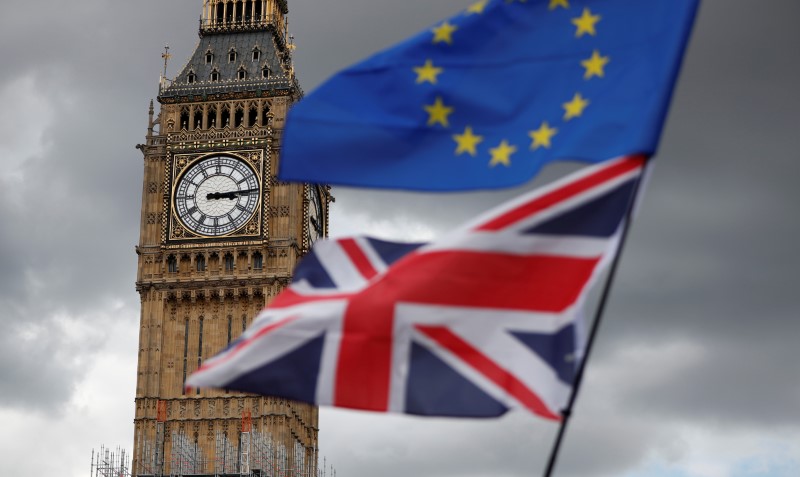LONDON—Britain will publish advice to businesses and the public on Thursday about how to cope with the disruption that exiting the European Union without a divorce deal would cause to everything from mobile phone roaming charges to vehicle standards.
Recent signals from Brussels have buoyed hopes that the United Kingdom and the EU can agree and approve a proper divorce agreement before the UK leaves on March 29, though the sides are still divided on about one fifth of the detail of a deal.
But many business chiefs and investors fear politics could scupper a deal, thrusting the world’s fifth largest economy into a so called “no-deal” Brexit that they say would weaken the West, spook financial markets and silt up the arteries of trade.
Britain has stepped up planning for the effects of such a departure and on Thursday afternoon will publish 28 technical notices on the impact on areas including customs and borders, competition, fisheries and aviation.
Brexit minister Dominic Raab said a no-deal Brexit was unlikely, but that the United Kingdom would manage the challenges and eventually flourish.
“With six months to go until the UK leaves the European Union, we are stepping up our ‘no deal’ preparations so that Britain can continue to flourish, regardless of the outcome of negotiations,” Raab said.
“These technical notices are part and parcel of our sensible, pragmatic approach to preparing for all outcomes.”

Both sides need an agreement to keep trade flowing between the world’s biggest trading bloc and the United Kingdom, home to one of the world’s top two financial capitals.
“Getting a deal with the European Union is still by far and away the most likely outcome,” Raab said.
But the other 27 members of the EU combined have about five times the economic might of Britain. They also have a strong incentive to deny the UK a deal so attractive it might encourage others to follow the British example.
Deal or No Deal?
As May tries to clinch a deal with Brussels, she is facing rebels in her Conservative Party who say they will vote down any deal that fails to deliver a sharp break with the EU.
Raab, speaking to BBC radio, said he did not believe May’s government would lose a vote in parliament on the deal.
Michel Barnier, the EU’s chief negotiator, said on Monday that a Brexit deal was possible “within six or eight weeks” if negotiators were realistic in their demands.
Last month, the government published 25 technical papers out of a total of more than 80, which detailed how tariffs, financial services, state aid and pharmaceuticals would operate if Britain departs without a divorce deal.
Ever since the shock 2016 Brexit vote, major companies have been planning for Brexit, but chief executives say the scale of disruption from a disorderly Brexit is such that it is hard to prepare for.

Profit at Britain’s biggest department stores group, John Lewis Partnership, was wiped out in the first half as it was forced to match discounting by its struggling rivals on a fiercely competitive high street.
“With the level of uncertainty facing consumers and the economy, in part due to ongoing Brexit negotiations, forecasting is particularly difficult,” John Lewis said.
Brexiteers accept there is likely to be some short-term economic pain but say Britain will thrive in the longer term if cut loose from what they see as a doomed experiment in German-dominated unity and excessive debt-funded welfare spending.
Opponents of Brexit fear leaving the bloc will torpedo what remains of Britain’s global influence, further undermine its reputation as a haven for investment and hurt the economy for years to come.


